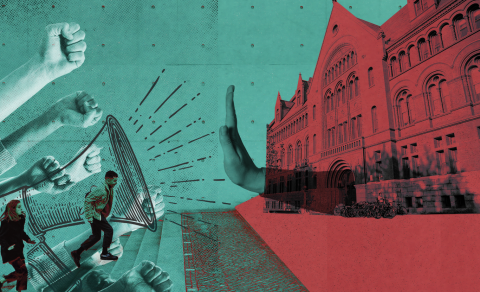Solidarity with student workers?
Several church bodies have adopted prolabor statements. The actions of their affiliated schools often tell another story.

In 2017, Tom Jorsch, a professor of US history at Bethany College in Lindsborg, Kansas, was informed that his application for tenure had been denied because of issues related to his lack of “collegiality.” Administrators told him that in order to qualify for tenure in the future, he would have to agree to complete a special plan first.
Jorsch was shocked. There had been no mention of issues regarding collegiality, or of the possibility of this special plan, when he had submitted his tenure application, he told me in an interview. The plan the administrators presented to him did not specify what problems they had with his collegiality, nor did it have any concrete criteria that he could meet. The plan also required absolute confidentiality from Jorsch—stipulating that he was not to talk to anyone about it except for the administrators overseeing its execution.
To Jorsch, the grounds of his tenure denial were unjust. He also felt that they exemplified broader issues with the tenure process at Bethany. With no union to back him, and no alternative recourse within the college, he decided to take action and start a larger conversation with his coworkers about the issue.




